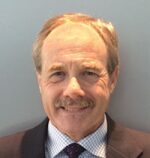“This, too, shall pass.” The exceptional year that has been 2020 highlights the fact that the world can change quickly, and a challenging macroenvironment brings into focus the need to maximize the use of our natural resources and the value that can be derived from them. Even without the black swan event of COVID-19, the industry must critically examine the technical, commercial, and operational bases of the projects it proposes and executes. A logical, reasonable, ethical, and philosophical approach is critical to underpin good decision making and value creation.
Paper SPE 196252 delivers a comprehensive discussion of the issues to consider in the management of mature oil fields that are becoming increasingly important as older fields decline and approach abandonment. The discussion makes direct reference to assessing the late-life economic limit within the context of the Petroleum Resources Management System. Mitigations such as infield drilling, workovers, and facility management can extend production, improve the economics of the project, and increase reserves. Other considerations around minimizing the cost and optimal planning in respect to abandonment and decommissioning will be required to ensure environmental safeguards and minimize cost liabilities.
Paper URTeC 198318 considers a timely look back on the delivery of unconventional projects, the failure of many to meet expectations, and likely causation. A disciplined and systematic approach is proposed to mature the project through four stages of success in discovery, deliverability, demonstration, and development. It is important to obtain sufficient information to underpin each decision point and provide confidence in the commercial evaluation. The paper also stresses the importance of clear guidelines and work flows, independent assurance, and thorough post-appraisal of activities and projects to ensure accountability and improve delivery of value.
Paper SPE 196362 describes a philosophical approach to enhanced oil recovery (EOR) and provides an extensive review of the topic and projects, supported by a comprehensive reference list. As with the previous paper, a logical, reasoned, and systematic analysis is recommended when confirming the technical and commercial viability of EOR. A creative and innovative approach coupled with experience and expertise is critical to success.
2020 will be remembered as a particularly challenging year in many respects, but, as Tom Hanks’ character Chuck Nolan observes in the movie Cast Away, “I gotta keep breathing. Because tomorrow the sun will rise. Who knows what the tide could bring?”
This Month's Technical Papers
Management of Reserves in Mature Oil and Gas Fields
How to Make Better Investment Decisions in Unconventional Projects
The Philosophy of Enhanced Oil Recovery
Recommended Additional Reading
SPE 199522 A Global Push for Circular Economy Projects by Dawson Lindauere, Repsol, et al.
SPE 201556 Appropriately Characterizing Uncertainty in Estimated Ultimate Recovery for Unconventional Type Wells by Patrick Miller, Petronas, et al.

Barbara Pribyl, SPE, is reserves and resources manager at Santos. She has more than 20 years of experience as a geologist and in reserves and resources management, based in the Australian oil and gas, coal exploration, and coal-seam-gas industry. Pribyl holds an honors degree in geology from the University of Wollongong. Her focus in recent years has been on Australian and international oil and gas reserves and resources assurance and reporting. Pribyl has been a member of the SPE Oil and Gas Reserves Committee since 2014 and is the chair of the JPT Review Board. She can be reached at barbara.pribyl@santos.com.

Greg Horton, SPE, is retired from Santos after 33 years of reservoir-management responsibilities and maintains an active role in improving the SPE Petroleum Resources Management System (PRMS). He holds an honors degree in civil engineering from Adelaide University. Horton was a member of the SPE Oil and Gas Reserves Committee from 2011 to 2014, is a member of the SPE PRMS Improvements Subcommittee, and serves on the JPT Review Board. He can be reached at ghortonpeteng@gmail.com.

